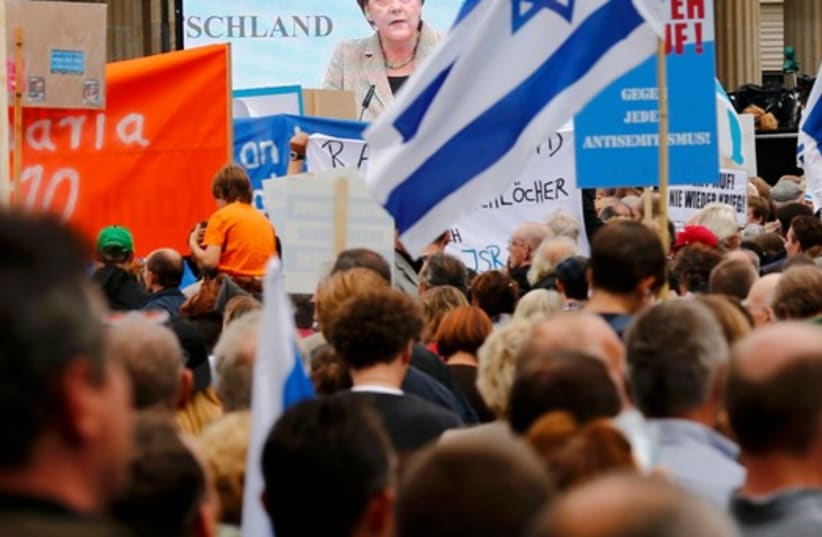A Related Video You May Like:
MOST ATTACKS BY FAR-RIGHTSince 1991, the number of Jews belonging to a religious community has more than tripled to more than 100,000, boosted by an influx from the former Soviet Union. About the same number are non-practicing Jews or people with Jewish roots in Germany.This compares to about 600,000 before the Nazi Holocaust and just 10,000 at the end of World War Two.Tagesspiegel daily, citing government figures, has reported that four antisemitic crimes were reported on average per day last year, around the same level as in 2016. The majority - 1,377 of 1,452 - were committed by right-wing radicals.The anti-immigrant Alternative for Germany (AfD) blames the influx of more than 1.6 million migrants, many from the Middle East, since 2014."We sounded warnings very early about the huge strength of Muslim anti-Semitism," said senior AfD member Georg Pazderski.Schuster from the Central Council of Jews also called on Muslim groups to stand up to antisemitism. "There can be no tolerance of intolerance," he said.Germany's Central Council of Muslims and Turkish groups have backed the rallies."If you want to fight Islamophobia, then you can't tolerate antisemitism either. And we know where antisemitism ended up in German history," Gokay Sofuoglu, head of the Turkish Communities in Germany, told the Berliner Zeitung.In an attempt to assuage concerns, Germany has appointed an antisemitism commissioner, former diplomat Felix Klein, who starts work next month, but critics say Chancellor Angela Merkel's government has done too little.
Germany scraps music prize over antisemitism before 'kippa march'
Echo music award was given to rappers with antisemitic lyrics.
